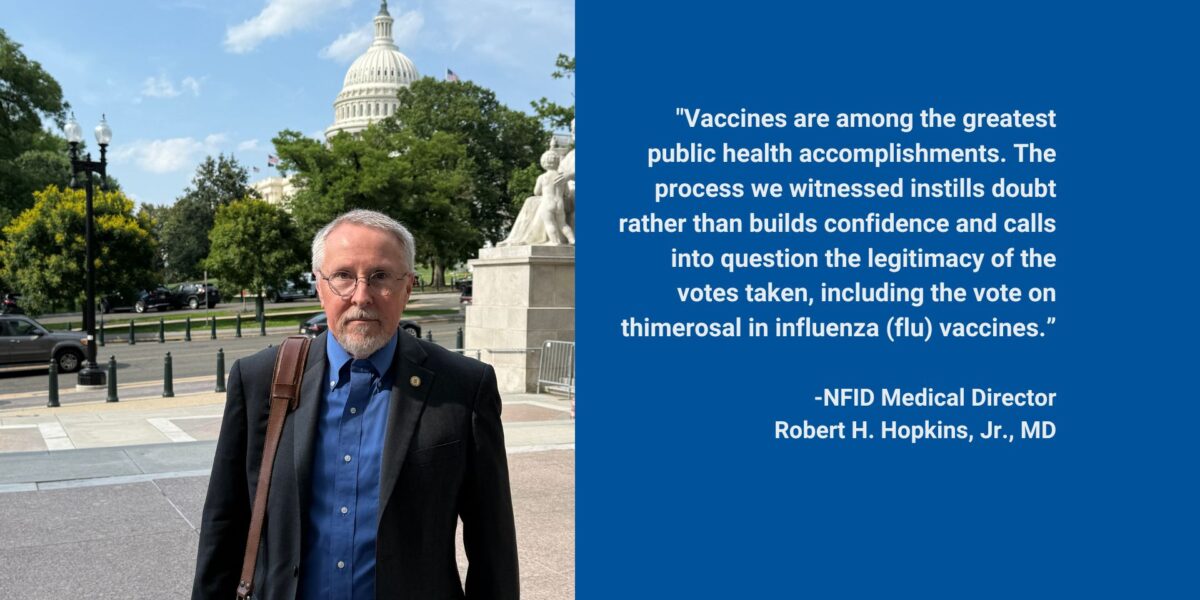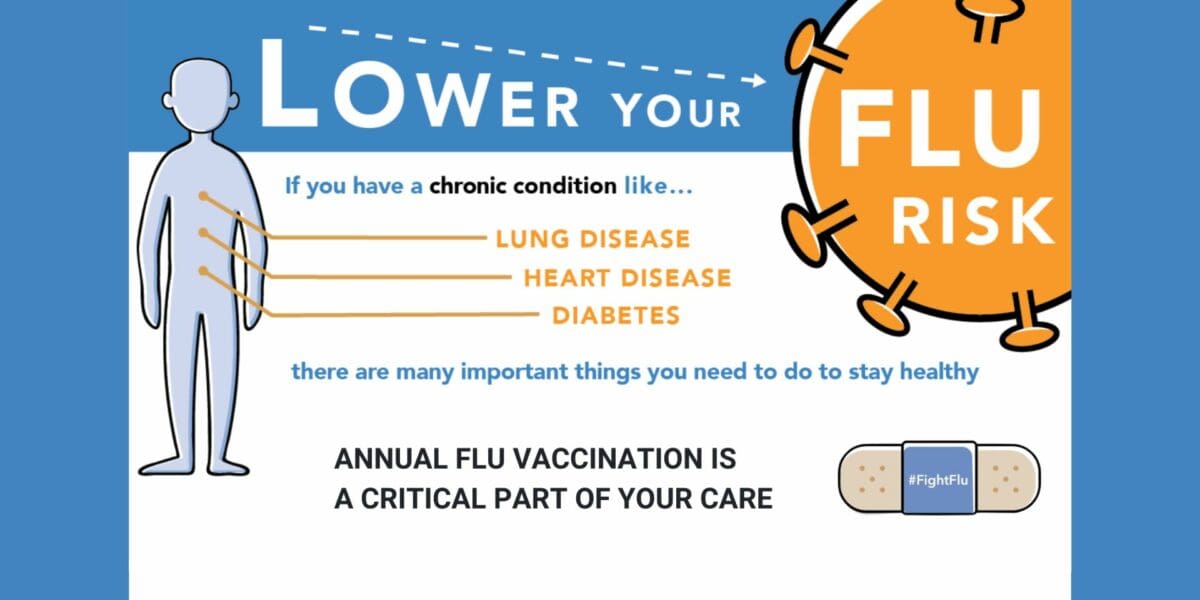Recent Press Releases
Statement on June 2025 Advisory Committee on Immunization Practices Meeting
NFID strongly supports the use of evidence-based guidance reviewed by qualified experts, within CDC and externally, to inform public health policy, and will work to protect the health of people across the US …
New Collaboration Aims to Empower Black Communities to Help Protect against Preventable Respiratory Diseases
NFID partners with National Council of Negro Women Good Health WINs to raise awareness about COVID-19, flu, pneumococcal disease, and RSV
Leading Health Organizations Urge Flu Vaccination for Those at Higher Risk
During National Influenza Vaccination Week, experts encourage everyone age 6 months and older to get vaccinated to reduce risk of severe illness and hospitalization




